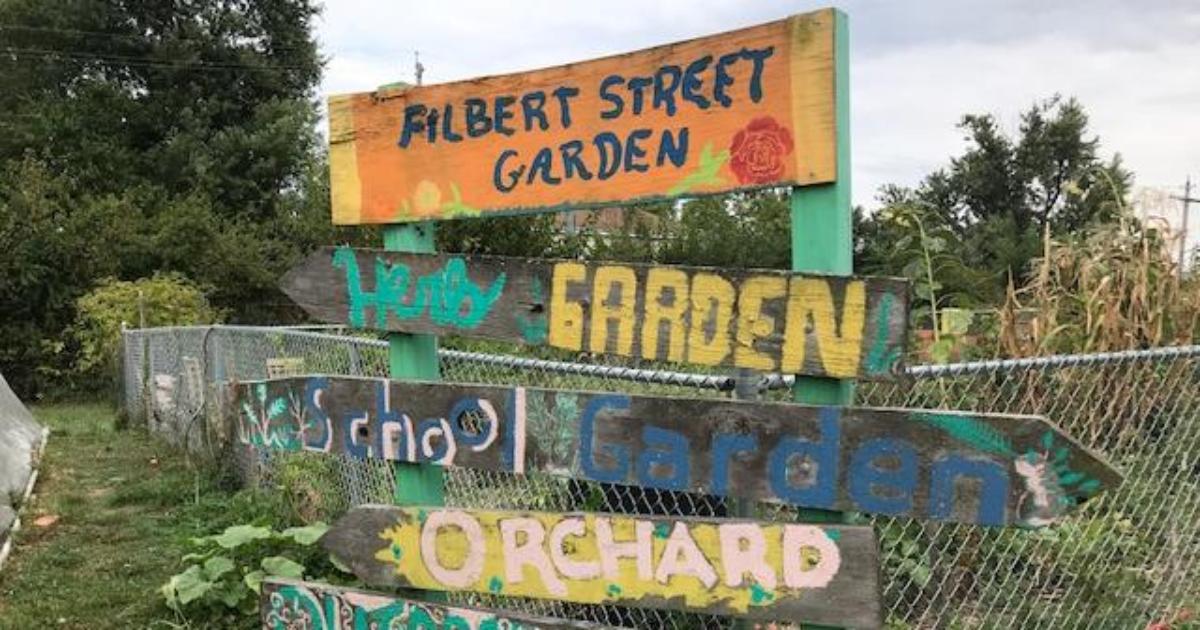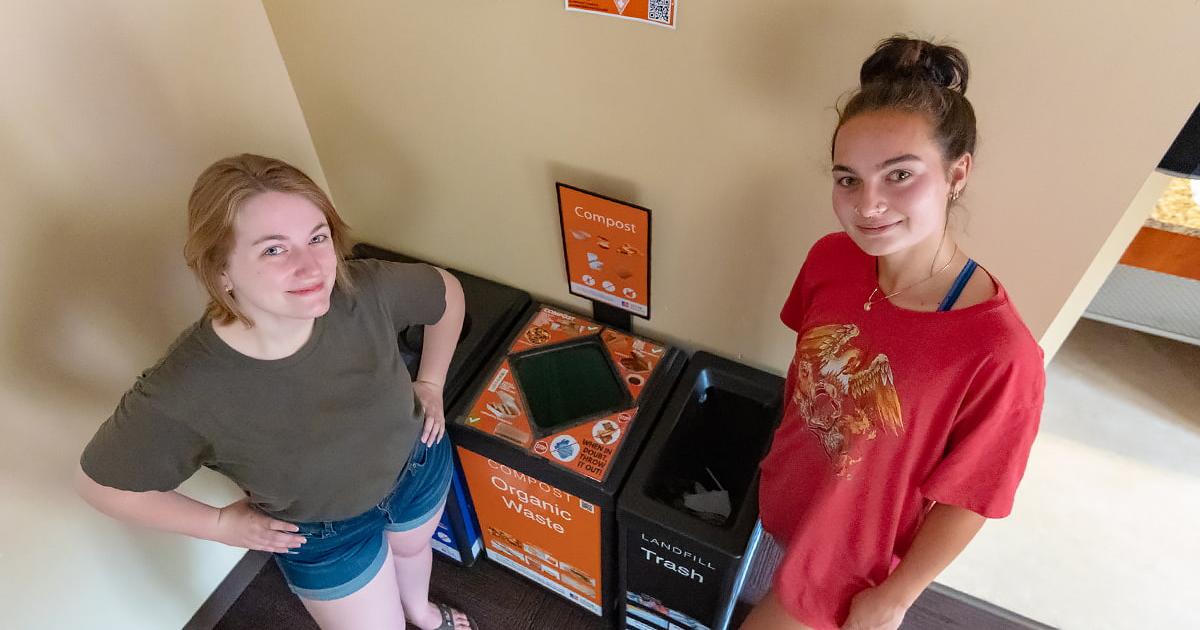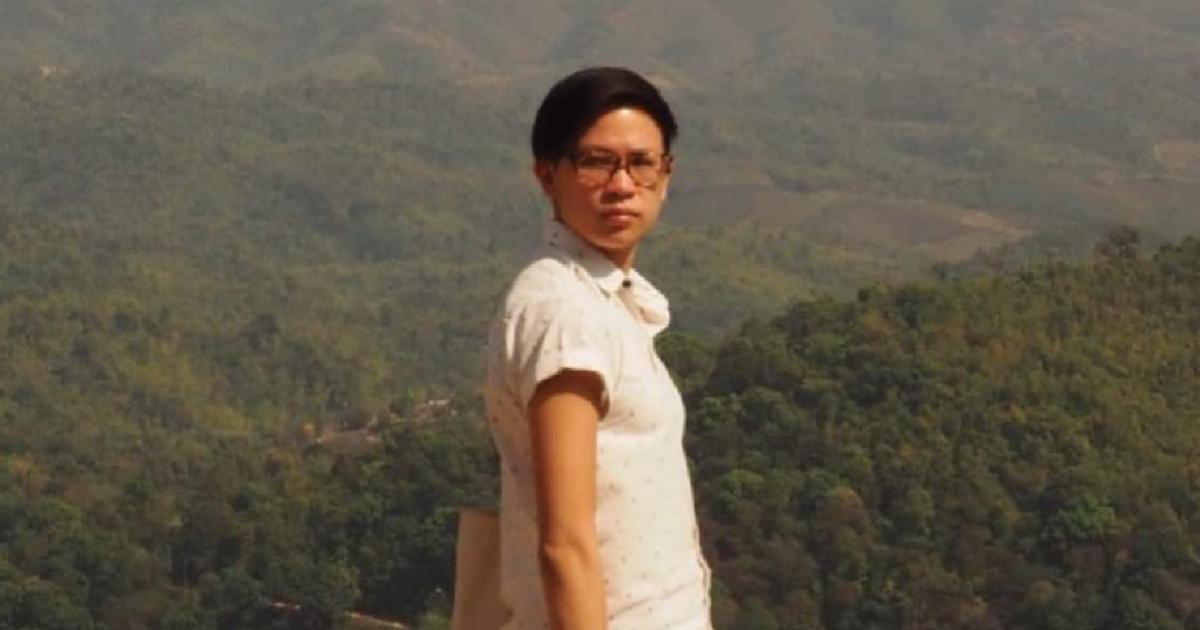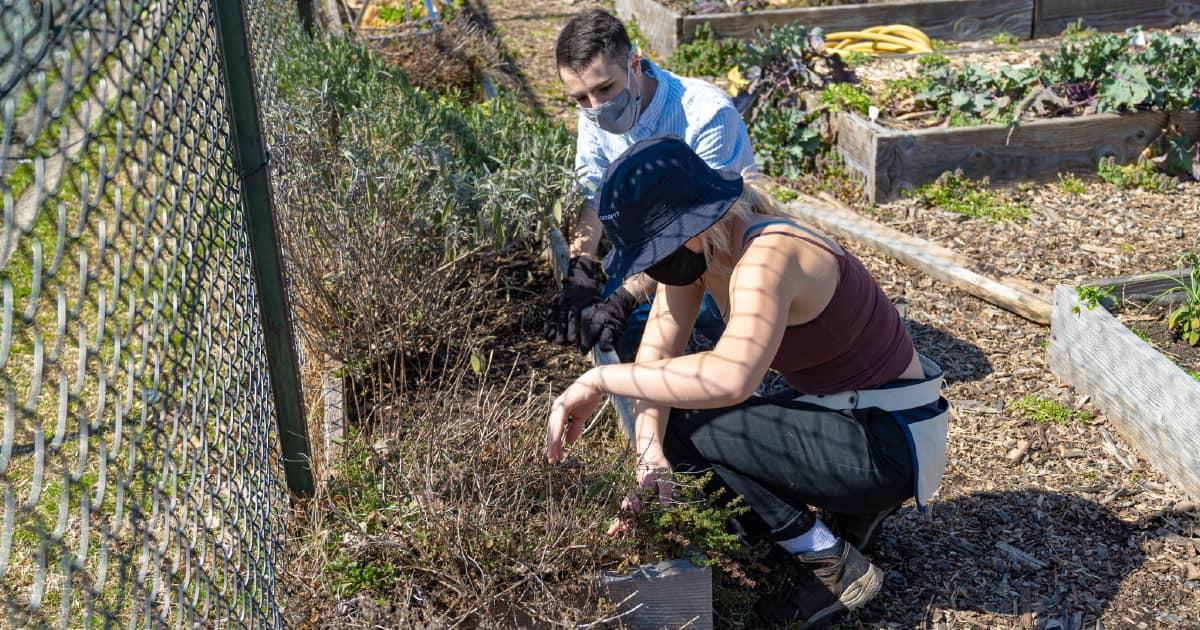A RECIPE for Changing the Food System

The food system is as simple—and as complex—as a can of tomatoes.
Fifteen-ounces of vine-ripened tomatoes are peeled, diced, seasoned, sealed, and shipped to the local market where they’re purchased and placed in the kitchen pantry. “But,” environmental science professor Sauleh Siddiqui said, “when you open that can, you have zero idea where those tomatoes came from, where the aluminum came from, how many places it traveled to get to the shelf in your grocery store, or how many people have touched it.
“The food system is essential to our daily lives, and it cuts across so many aspects of our society—and yet, we know relatively little about it.”
As principal investigator of a new, five-year, $15 million grant from the National Science Foundation (NSF)—the largest externally funded award in AU history—Siddiqui is leading a nationwide team of researchers that will reimagine a more sustainable, equitable, and resilient food system. The project—Multiscale Resilient, Equitable, and Circular Innovations with Partnership and Education Synergies (RECIPES) for Sustainable Food Systems—will focus on wasted food.
It’s a pervasive problem, and the gulf between supply and demand, exacerbated by the pandemic, is only widening. Forty percent of food in the US goes uneaten—even while more Americans go hungry. According to Feeding America, an estimated 42 million people, including 13 million children, will experience food insecurity in 2021—an increase of 20 percent since COVID-19 hit.
The environmental and economic impacts, too, are widespread. Each year wasted food results in the misuse or loss of about 4.2 trillion gallons of irrigation water, 1.8 billion pounds of nitrogen fertilizer, 780 million pounds of pesticides, and 30 million acres of cropland. Amid mounting climate crises, they are resources we simply can’t afford to waste.
The researchers aim to transform the food system from a linear model, “where we plug gaps of waste in a straight line to a circular system where we can reduce, reuse, and valorize all of the food that gets wasted,” Siddiqui said. The team—which includes 40 faculty from 14 institutions, including seven other AU professors—will synthesize existing research and gather new data, conduct interviews with community members and frontline workers, craft educational materials for elementary schoolers, and develop strategies to minimize household-level food waste.
“We have assembled a network of researchers that are incredibly committed to the work and who are [eager] to create a new common language around this,” said Siddiqui, associate director of AU’s new Center for Environment, Community, and Equity. “We’re coming to this challenge with a diversity of perspectives. Often in science that’s a problem, but here, it is the ultimate strength.”
Learn more about Multiscale RECIPES at wastedfood.american.edu.




